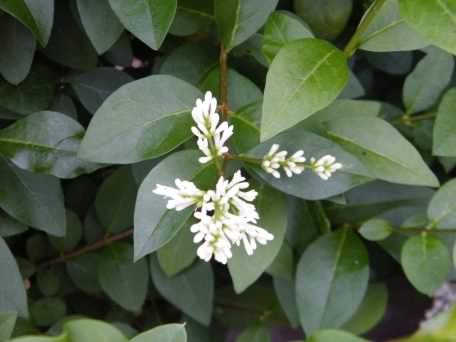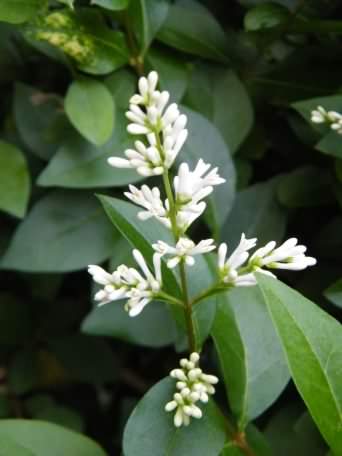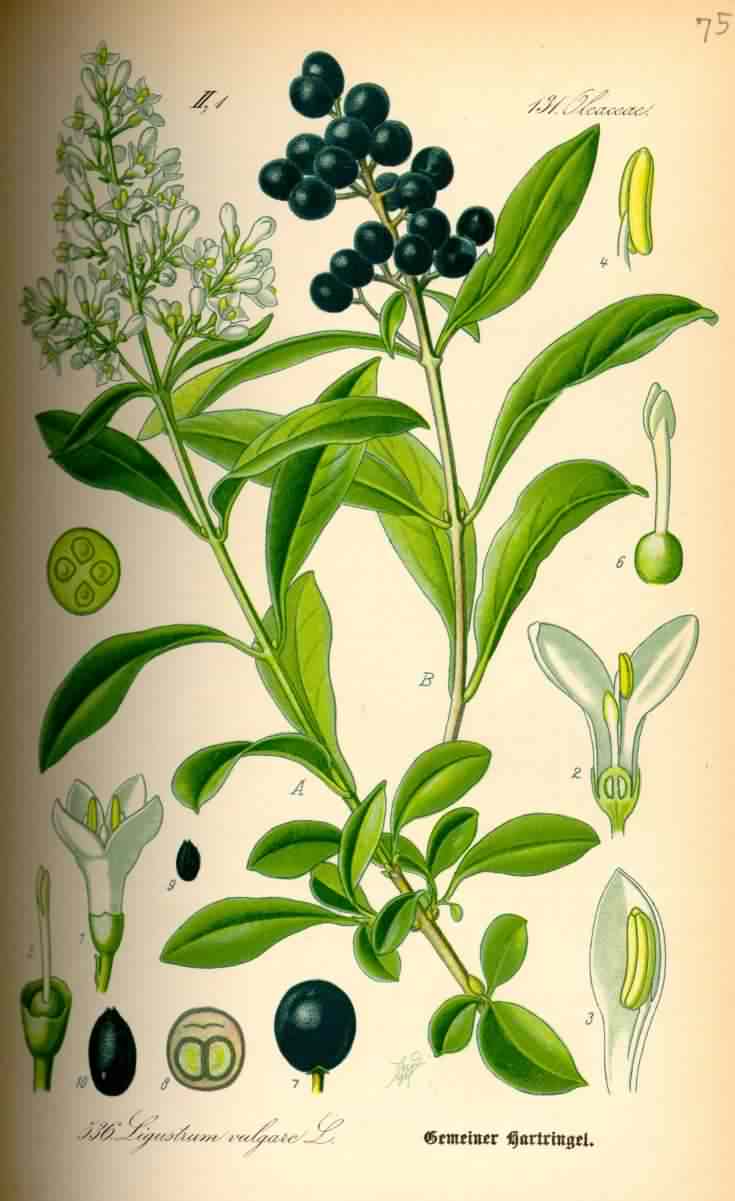


Picture 1885 Dr. Otto Wilhelm Thomé
Two photos left ©2013–
Click any photo for a larger image
Privet - Ligustrum vulgare
Family - Oleaceae
Also known as - Common or European Privet
This plant is poisonous
A mostly evergreen shrub growing to 3m (10ft) tall and sometimes more, in the UK it is used mostly for hedging. Occasionally deciduous loosing its leaves in colder climates or severe frosts. Native to Europe and North Africa, it is listed as an invasive introduced plant in Australia, Canada, New Zealand, and the United States. They grow on almost any soil conditions, except very wet conditions, but prefer to be on chalk. Common in hedgerows and woodlands in southern England and Wales, especially, less so in northern England, Scotland, and Northern Ireland, where it only occurs as an escape from cultivation.
A dense bushy shrub of stiff, erect stems with grey–brown bark spotted with small brown lenticels. Narrowly oval to lanceolate green leaves in decussate opposite pairs, are dark green almost shiny, 2–6cm (0.8–2.4in) long and 0.5–1.5cm (0.2–0.6in) wide. Small white fluffy 4 petaled flowers in panicles 3–6cm (1.2–2.4in) long appear in June to July, fruiting to a glossy black berry 6–8mm (0.23–0.31in) in diameter containing up to four seeds. The flowers produce a strong musky pungent fragrance that many people find unpleasant. Requires frequent trimming during the growing season to maintain as a hedge.
BCP do not advise or recommend that Privet – Ligustrum vulgare is eaten or used as an herbal remedy. Although poisonous to humans the berries are readily eaten by thrushes.
Privet has good wildlife value, its dense habit provides an ideal nesting site for several species of birds. The flowers attract bees and other insects, and thrushes, Blackbirds and Waxwings eat the berries. moths, including the Privet Hawk–moth and the Lilac Beauty moth feed on the shrub. A related Japanese variety L. ovalifolium is a taller more robust species and more reliably evergreen which is now quite popular for hedging.
 |
 |
 Picture 1885 Dr. Otto Wilhelm Thomé |
Two photos left ©2013– Click any photo for a larger image |
Site design ©1999– Brickfields Country Park - Privacy -